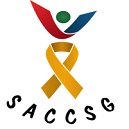Original Research
Experiences of families of men with prostate cancer on supportive care received from nurses
Submitted: 20 June 2023 | Published: 31 October 2023
About the author(s)
Salomo Salomo, Department of Nursing Science, Faculty of Health Science & Veterinary Medicine, University of Namibia, Oshakati, NamibiaHans J. Amukugo, Department of Nursing Science, Faculty of Health Science & Veterinary Medicine, University of Namibia, Oshakati, Namibia
Anna P.K. Shilunga, Department of Public Health, Faculty of Health Science & Veterinary Medicine, University of Namibia, Oshakati, Namibia
Abstract
Background: Family members of men diagnosed with prostate cancer (PCa) experience a range of supportive care needs. Literature indicated inconsistent supportive care from nurses to families of men diagnosed with PCa.
Aim: Exploring and describing the experiences of family members of men diagnosed with PCa on the supportive care received from nurses.
Setting: The study was conducted in the oncology departments of the Intermediate Hospital Oshakati.
Methods: Qualitative, exploratory, descriptive, phenomenological and contextual designs were adopted. A sample of seven family members of men diagnosed with PCa was selected using a non-probability purposive sampling technique. Individual face-to-face interviews were conducted. Interview guide and field notes were used to collect data. All interviews were recorded with an audio recorder and transcribed verbatim. Content analysis using Tesch’s eight steps of open coding was adopted to analyse data. Criteria for establishing trustworthiness of the data were used. Fundamental ethical principles were adhered to.
Results: The study revealed lack of family involvement in treatment and decision-making. Two themes emerged: (1) feeling of being devalued in the healthcare system, and (2) non-conducive environment for counselling men.
Conclusion: It became evident that family members of men diagnosed with PCa are rarely considered in clinical practice. Recommendations are made in terms of policy formulation, organisational changes in the hospital protocols and staff training.
Contribution: The study proposed the introduction of national policy on supportive care of men with PCa and an inclusion of their families during treatment and decision-making.
Keywords
Sustainable Development Goal
Metrics
Total abstract views: 826Total article views: 551



